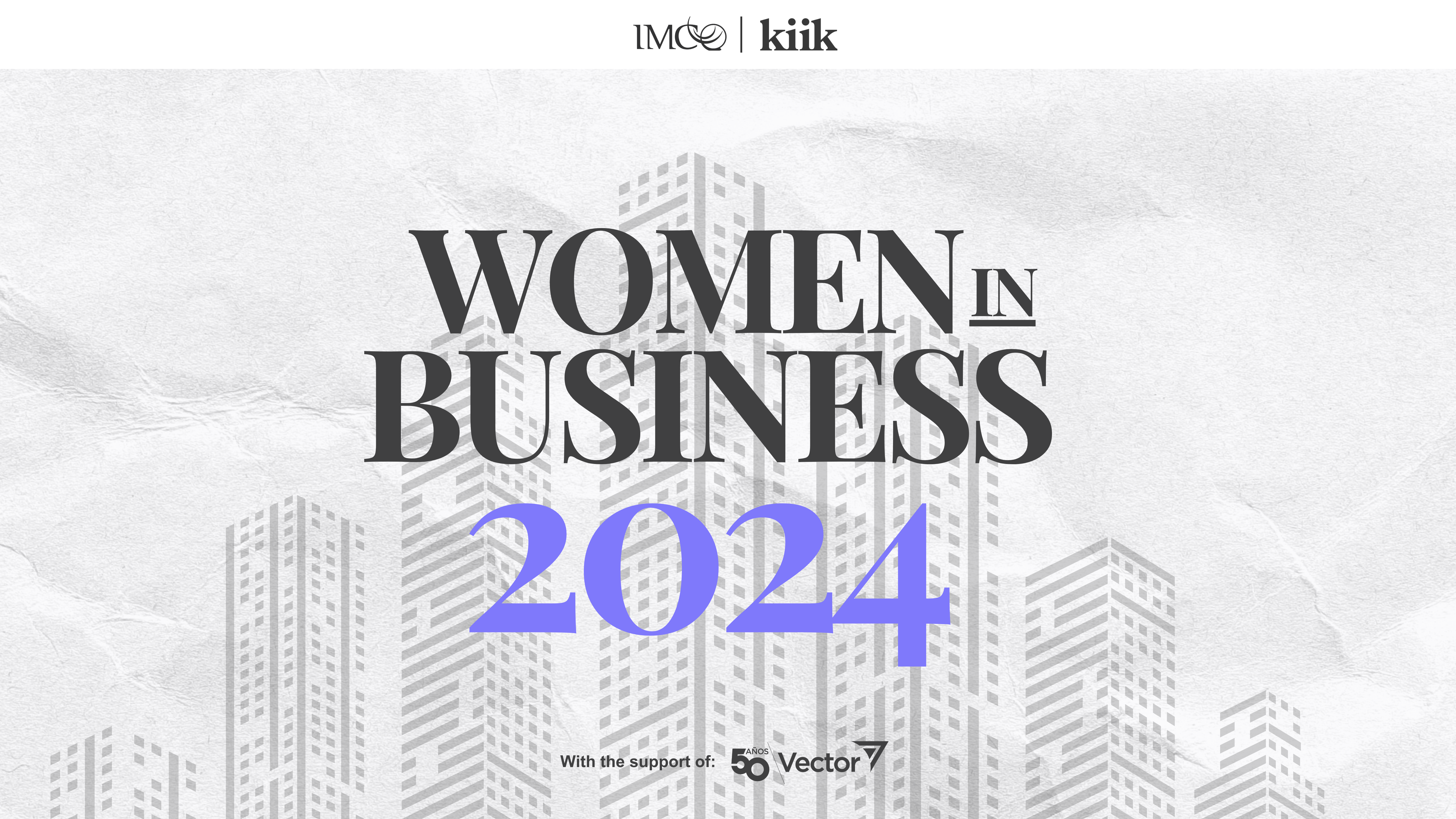
Women in Business 2024
- In 2024, boards of directors in Mexico remain predominantly composed of men, with women holding just 13% of the seats.
- The participation of women in senior executive positions has declined. While women in CEO roles dropped from 4% to 3%.
- Nearly half of the companies have at least one reporting error in their annual stock report information.
Globally, women’s participation on boards of directors increased on average from 10% in 2003 to 27% in 2022, according to OECD data. In the United States, the presence of women in management positions increased from 8% to 22% between 2005 and 2024. Despite this progress, the growth has slowed in recent years, with 2023 marking the first decline of women’s representation in C-Suite roles in two decades. How do the results in Mexico look like?
For the fourth consecutive year, the Mexican Institute for Competitiveness (IMCO) in alliance with Kiik Consultores, analyzed over 200 companies listed on the Mexican Stock Exchange (BMV) and the Institutional Stock Exchange (BIVA) in 2023. Additionally, for the first time, the analysis includes 15 Real Estate Investment Trusts (FIBRAs, for its acronym in Spanish), known for their high performance in the domestic market. This edition concludes that women’s participation in companies is stagnant, and in some cases, has even declined.
Some of the key findings include:
Boards of directors. In 2024, the presence of women on boards continues to be low, with an average of 13% of board members being women, the same figure as the previous year.
- Of the total number of new seats occupied by women between 2022 and 2023, 55% corresponds to the incorporation of an additional chair.
- The growth in the number of independent women board members has been slow, from 3.8% in 2020 to 4.6% in 2023. Independent board members are not directly linked to the company and are chosen for their professional capacity and prestige.
- 7% of the companies have at least 30% women on their boards, a slight improvement over the previous year (6%).
- Of the analyzed boards, nine are chaired by a woman, while almost one in four boards is composed exclusively of men.
C-level positions (executive, finance and legal). Even though women represent 43% of the workforce, 23% reach the Chief Legal Officer (CLO) position, 11% a Chief Finance Officer (CFO) position, and 3% occupy a Chief Executive Officer (CEO) position.
- Compared to 2022, the presence of women in the CEO positions decreased by one percentage point and, in CLO, by two percentage points.
- 73% of companies do not have women in their C-level positions, and only one of the companies analyzed has women in all three roles.
Economic sectors.
- The sector with the highest women representation on boards is the health sector (24%), while the public services (9%) and telecommunications (11%) sectors have the lowest participation.
- In terms of C-level positions, the energy and telecommunications services sectors have no women's participation, while in the health and public services sectors the participation reaches 30% and 25%, respectively.
Information reporting. All the companies analyzed publish an annual report; however, only 13% of them present a sustainability report to the stock exchange.
- Half of the companies publish policies aimed at women’s inclusion. The most common measures include diversity policies within teams, anti-violence protocols, and continuous training or leadership development programs for women.
- 47% of companies report at least one reporting error, such as duplicate listings of directors or missing gender classification.
Mexico is far from achieving gender parity in senior management positions and on boards of directors. While achieving this would promote economic benefits for companies and the country, the inclusion policies reported by companies have not been effective in closing gender gaps across all hierarchical levels. To accelerate progress, IMCO and Kiik propose:
- Improve the information disclosure in corporate, financial, and sustainability reports to enhance transparency. Additionally, it is essential to standardize or streamline data collection processes with a gender perspective.
- Revise and modify processes and develop gender-specific evaluation indicators within companies. This includes reviewing hiring criteria and tracking progress in the promotion of women across all levels of the organization.
- Invest in women’s inclusion policies. Beyond the public commitments of companies to gender equality, concrete actions must be taken, such as incorporating Diversity, Equity, and Inclusion (DEI) training into their annual budgets.
As part of this research, 12 awards were presented to publicly listed companies with at least three independent female proprietary board members. 50/50 Women on Boards recognized the following companies: BBVA, Fresnillo PLC, Bolsa Mexicana de Valores, Fibra Educa, Banco Santander México, Fibra Mty, Grupo Pochteca, Grupo Aeroportuario del Sureste, Alsea, Grupo Traxión, Anheuser-Busch Inbev and Grupo Bimbo.
We are grateful for the support of Vector Casa de Bolsa. For more details on the results and methodology of this study, please consult the complete document here.
